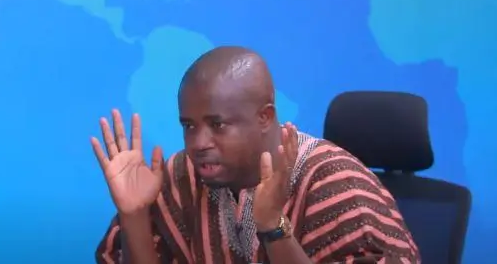The recent controversy surrounding Sammy Gyamfi, Acting CEO of the Ghana Gold Board, and his interaction with Evangelist Patricia Asiedua, better known as Nana Agradaa, has sparked a national conversation about the conduct of public officials and the expectations placed upon them. A video depicting Gyamfi handing dollar notes to Asiedua drew significant public backlash, prompting Gyamfi to issue a public apology and raising questions about the application of President John Mahama’s newly instituted Code of Conduct for appointees. This incident serves as a timely illustration of the heightened scrutiny placed on public officials, particularly those appointed by President Mahama, and underscores the importance of adhering to both the letter and the spirit of ethical guidelines.
Edudzi Tamekloe, Acting Chief Executive Officer of the National Petroleum Authority (NPA), has framed the President’s Code of Conduct as a crucial guiding document, likening it to a religious text. He emphasized his personal commitment to upholding the principles enshrined within the code, highlighting his practice of keeping a readily accessible copy on his phone. Tamekloe’s comments underscore the significance of the code as a framework for ethical behavior and accountability within the Mahama administration. While acknowledging that Gyamfi’s actions might not constitute a direct violation of the code’s specific provisions, Tamekloe emphasized the broader context of public perception and the elevated standards expected of Mahama’s appointees.
Tamekloe attributed the heightened scrutiny to two key factors: the legacy of the previous administration and the deliberate inclusion of a significant number of young appointees in the current government. He argued that the perceived shortcomings of the preceding eight years have created a demand for a more transparent and accountable government, raising public expectations for the conduct of officials. Furthermore, the appointment of a predominantly younger cohort of individuals, approximately 70% of whom are under 50, has amplified the focus on their actions and adherence to ethical standards. This younger generation of leaders is seen as representing a new era in Ghanaian politics, and their behavior is closely scrutinized as a reflection of the administration’s commitment to change.
The incident involving Gyamfi and Asiedua highlights the complexities of navigating public life, particularly in the age of social media and heightened public awareness. While Gyamfi maintained that his gesture was a private act of kindness, its subsequent exposure on social media transformed it into a public matter subject to scrutiny and interpretation. This incident serves as a cautionary tale for public officials, emphasizing the need to be mindful of the potential for even private actions to become public and the consequent implications for their reputations and the government they serve. Tamekloe commended Gyamfi’s swift apology and acknowledgement of the public’s concerns, emphasizing the importance of taking responsibility for one’s actions and demonstrating sensitivity to public sentiment.
The controversy surrounding this incident extends beyond the immediate actions of the individuals involved, serving as a broader commentary on the evolving landscape of public accountability and the heightened expectations placed on public officials. The incident has sparked discussions about the nature of appropriate conduct, the role of public perception, and the importance of maintaining ethical standards in all aspects of public life. Tamekloe’s reflections highlight the need for continuous self-reflection and a commitment to exceeding the minimum requirements of ethical codes, particularly in an environment of increased public scrutiny.
In conclusion, the incident involving Sammy Gyamfi and Nana Agradaa has prompted a national conversation about the ethical responsibilities of public officials and the importance of adhering to both the letter and the spirit of codes of conduct. The incident serves as a valuable lesson for all public figures, emphasizing the need for heightened sensitivity to public perception and the potential consequences of even seemingly private actions. The emphasis placed on President Mahama’s Code of Conduct, as exemplified by Edudzi Tamekloe’s comments, underlines the administration’s commitment to transparency and accountability, while acknowledging the ongoing need for vigilance and self-reflection among public officials. The broader context of this incident highlights the evolving dynamics of public accountability in the digital age and the imperative for public figures to maintain the highest ethical standards in all their interactions.


